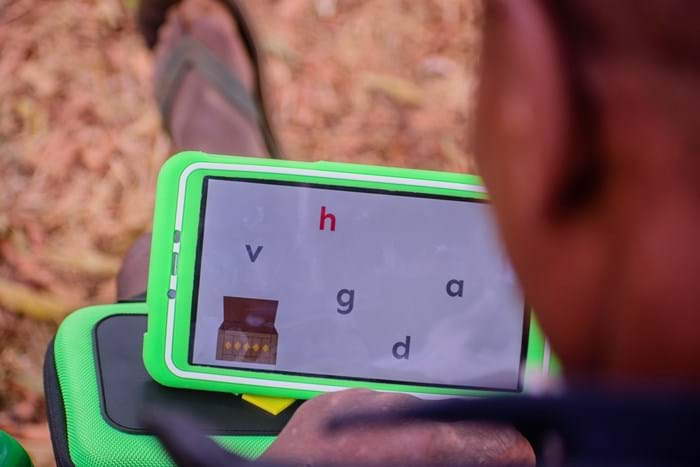- 0,000
children will directly benefit from the project
- 00
schools will be included in this initiative
Where
Kailahun, Sierra LeoneFocus area
EducationDuration
2023 - 2025Economy
DKK 10 million
Context
There is a strong commitment within Sierra Leone to improve foundational literacy and numeracy. The Education Sector Plan 2018-2020 explicitly prioritises improving literacy and numeracy in the early grades. The government’s commitment to foundational learning however comes against a backdrop of significant challenges. In 2018, Sierra Leone had a Human Development Index (HDI) of 0.438, placing it in the low human development category and positioning it at 182 out of 189 countries and territories.
58% of the population live in rural areas, with less access to technological infrastructure and fewer schools.
Sierra Leone’s net primary school enrolment is nearly at 100%. However, learning outcomes are low, both in absolute terms and in comparison to other countries in the region, with the average student completing the equivalent of just 4.5 learning-adjusted school years (World Bank, 2019). Only two-thirds of students pass the primary level examination.
The Unlocking Talent pilot project highlighted several factors affecting the acquisition of strong numeracy and literacy: overpopulated classrooms, lack of materials and resources, poorly trained teachers in teaching numeracy and literacy, lack of support from the School Management Committee, and lack of technologies to support teaching. The pilot, however, also demonstrated that EdTech presents a window of opportunity to addressing learning poverty and gender disparity in learning. Two approaches (tablet sharing and projector) looked particularly promising to address learning poverty and do so cost-effectively and sustainably.
Objectives
- To enhance literacy and numeracy skills of Grade 1-2-3 learners using two EdTech models (Projector and Tablet sharing models).
- To improve teachers’ knowledge, competence, and confidence in using EdTech to improve learning outcomes in early-grade learning.
- To generate evidence on the effectiveness and efficiency of two EdTech models (Projector and Tablet sharing models)
VSO will carry out an effective and speedy procurement process and work closely with The Ministry of Basic Education to ensure the timely delivery of all requisite hardware. Local communities will be engaged in activities to ensure that they understand the use and benefits of EdTech to enhance early-grade learning, enabling them to monitor the implementation of EdTech to ensure accountability of teachers and school leadership to the community.
Evidence-based in-service training approaches will be used to enhance the capacity of teachers to use EdTech effectively. Teachers and school leaders will be trained on the basics of managing EdTech interventions, including linking with local communities and working with technicians to ensure the
functionality and safety of the equipment. Evaluation of the effectiveness of teacher capacity development will be carried out.
A research partner with demonstrable global experience researching learning outcomes using digital personalised learning and projectors will be selected. This partner will work closely with the research officers in the Ministry to evaluate this intervention.
Research outputs will be meticulously validated and disseminated widely, in Sierra Leone and globally.

